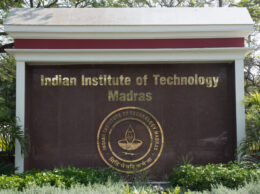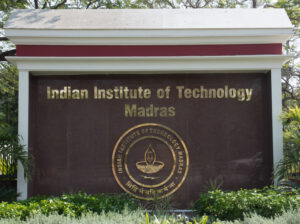New Delhi : A study on the hiring trends in Analytics and Data Science domains conducted by Great Learning, India’s leading EdTech Company for professional and higher education has revealed that the industry is witnessing a massive supply gap when it comes to Data Science talent, with 92% hiring managers having faced the shortfall. The study also flags emerging skill gaps in Data Science specialist skills like NLP, Artificial Intelligence Robotics & Automation, Machine Learning and so on.
As a strong endorsement of the growing mainstreaming of the Data Science domain, close to half of the surveyed hiring managers consider a formal qualification / degree in Data Science to be essential for a career in Data Science. The study also finds that the lack of gender parity is an issue in the Data Science domain, like it is with the broader tech domain. With the hiring activity coming back to pre-pandemic levels, the report captures a number of insights on hiring trends, demand for talent, skill gaps and other challenges in hiring.
A little over half of the surveyed hiring managers represented B2B enterprises, about 1/4th represented B2C companies and the rest included Government and others. Industry sectors like BFSI had the maximum representation (21%) followed by IT/ITES, Retail, E-commerce, Telecom, Engineering and Manufacturing.
Talent Gap in Data Science
As per the study, a wide gap exists between the talent sought by enterprises and the supply that the vast talent pool offers. Of all the hiring managers and leaders surveyed for this study, 92% confirmed that they have witnessed a wide demand and supply gap between Data Science talents in India. 57% believed that the gap between supply and demand exists at the Entry Level / Fresher level while 27% of the hiring managers believe that the talent gap exists in the Mid-level roles of Team Lead and Project Management, highlighting the need to upskill both early stage and mid-career professionals with enterprise-specific use cases of Data Science. The biggest skills lacuna was identified in the area of Natural Language Processing (NLP) by 15% of the hiring managers followed by Artificial Intelligence (12%), Automation (11%), Computer Vision (CV) (10%), Analytics (9%) and Machine Learning (7%). Is Formal Education necessary for a career in Data Science?
With companies across the globe rethinking the importance of degrees in their hiring processes and increasingly giving more weightage to a candidate’s skill and ability, the study tested the views of Indian hiring managers when it comes to the importance of degree in their recruitment process. 40% of the surveyed hiring managers consider a formal qualification / degree in Data Science to be essential for a career in Data Science, underscoring the mainstreaming of the domain.
Cities Offering the Most Hiring Opportunities
Bengaluru has once again taken the pole position as the leading city for hiring talent in Data Science, with 54% hiring and recruiting managers selecting it as the preferred destination for hiring Data Science professionals. It is followed by Hyderabad the emerging cyber hub with 15% hiring managers reposing their faith in the city. The BPO and KPO hubs of Delhi NCR and Pune were preferred by of 9% and 6%, respectively, followed by Mumbai and Chennai, which were preferred by 5% each.
The large gap between Bengaluru and the rest of the cities signifies the superiority of the ecosystem that consists of a skilled talent pool, cutting edge application of Data Science both at corporates and startups and the opportunities to work on consulting projects, and carry out extensive research in the field.
Top hiring methods preferred by recruiters in Data Science space
Hackathons and Recruitment Events are the most preferred method amongst recruiters to hire candidates. Hackathons provide managers an opportunity to test the candidates in real life situations by simulating an environment where the candidates must find solutions to a given business case or problem. This method is followed by Employee Referrals, which 22% of the respondents identified as the preferred method of hiring. This is followed by common methods like online job sites and campus recruitment.
Existence of Gender Gap
The gender gap remains a problem in not just the Data Science domain but also the broader technology segment. 68% hiring managers indicated that gender gap exists across the talent pool. The reasons behind it include gender-based pay disparity in the Data Science space, less awareness of opportunities in the space among the fairer sex and the lack of sufficient support from enterprises in ensuring work life balance.
Hari Krishnan Nair, Co-Founder, Great Learning said, “We have been working with recruiters and candidates in the Data Science space for more than 8 years now and have seen first-hand the challenges they go through when it comes to finding the right candidates/jobs. The purpose of this study was to bring to light the key trends in the Data Science space that can help budding professionals plan their career path in line with the industry requirements and focus on the steps taken by organizations to address the underlying talent gap. In addition to that, the report also looks at larger trends impacting the space like the importance of formal education, geographies that offer the most opportunities and challenges like skill gaps and gender gap. With every industry undergoing digital transformation, the demand for Data Science functions like NLP, AIML, big data, and automation are at an all-time high. The need of the hour is to raise our education standards and upskill our workforce to grab these new opportunities.
Notes for the Editor:
Methodology
The report has been developed after rigorous primary research through a survey released to hiring managers and Data Science leaders across many analytics and Data Science functions. This was complemented by direct discussions with a few hiring managers to understand perspectives on hiring across the functions of Analytics, Artificial Intelligence (AI), Natural Language Processing (NLP), and Computer Vision (CV), among others. 57% respondents who participated in the study are from B2B background, 28.7% respondents are from B2C background while 14.3% are from other enterprise categories (government, B2B and B2C).
In terms of industry categories, the BFSI sector had the maximum representation at 21%. This was followed by the IT & ITES segment and E-commerce & Retail, which represented 15% and 12% of the pool respectively. Telecom was represented by 11% of the total respondents while the remaining sectors that participated included Engineering and Manufacturing (10%), Media and Entertainment (8%), Consumer Goods and Electronics (7%), Technology (5%), and Automotive (4%).








